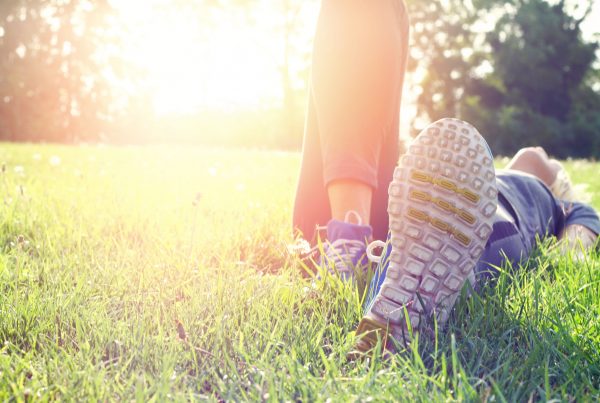”Alaska, did you know exercise could be a way to strengthen your immune system? You can learn more about how exercise strengthens our immune systems in this week's article. We hope you learn something new and that this motivates you to move more!
Reading time: 8 Minutes
MWi Hacks:
- Understand how exercise can support your immune system
- Learn the five areas where you can focus your attention this new year
MWi Summary:
- Exercise mobilizes pathogen and inflammation-fighting immune cells and thus can protect you from infection and chronic diseases.
- Here are a few tips to help you get the most out of exercise:
- Focus on consistency
- Don’t be afraid of intensity
- Make sure to recover
- Do both cardio and strength training
- Get outside
PHYSICAL ACTIVITY CAN help optimize the body’s defenses against infection. And in the age of novel coronavirus, that’s more important than ever. Fortunately, research provides keen insights on how exercise affects the immune system and how to approach exercise for the best results.
According to a 2019 review published in the Journal of Sport and Health Science, exercise mobilizes pathogen- and inflammation-fighting immune cells throughout the body and helps slow the effects of aging on immune strength. “Physical activity can also flush bacteria out of lungs and airways and causes changes in antibodies or white blood cells to help fight infections,” explains Dr. Purvi Parikh, a New York City-based allergist-immunologist affiliated with NYU Lagone Health.
Exercise is also effective in reducing the risk and severity of chronic health conditions that can increase levels of inflammation in the body. “This inflammation leads to worse outcomes when your immune system is trying to fight an infection,” Parikh says. “For example, in New York, patients with obesity, diabetes, and heart disease have the worst outcomes from COVID-19.”
Taking the right approach to most effectively exercise in the name of immune health is key. Here, experts share the answers and science-supported strategies to strengthen your immune system through exercise.
1. Focus on consistency.
The regularity of your exercise routine may be the most important factor in ensuring the immune benefits of activity, says Jim Beitzel, clinical athletic trainer and clinical coordinator for the Northwestern Medicine Athletic Training & Sports Performance Clinic in Warrenville, Illinois. For instance, a 2011 British Journal of Sports Medicine study that tracked 1,000 adults found that those who engaged in exercise five or more times per week reported 43% fewer sick days than those who exercised less often.
Why is consistency so important? “What you’re going for is a summation effect, in which each workout adds to the benefits of the prior one,” Beitzel says. Exercise infrequently, and the immune system takes the proverbial one step forward, one step back.
For most adults, 60 minutes of exercise five days per week is the immunity sweet spot, he says. However, if you’re new to working out, start small with perhaps 10 or 20 minutes of low- to moderate-intensity exercise per day, and increase your activity level over the course of weeks or months as you feel comfortable. As long as you stay consistent, every little bit will help.
2. Don’t be afraid of intensity.
In the past, immunologists have worried over the “open-window” hypothesis, the idea that high-intensity exercise might actually lead to a short-term dip in immunity. However, two years after a 2018 Frontiers in Immunology review first challenged the idea, a 2020 paper in Exercise Immunology Reviews confirms that increasing exercise intensity does not suppress immunity or increase the risk of infection.
High-intensity exercise, generally considered to be anything that increases your heart rate to more than 85% of its max (220 minus your age), can be part of any exercise routine that’s aimed at improving your immune health, Beitzel says. Options include running, cycling, and rowing sprints as well as fast-paced plyometric strength training.
3. Make sure to recover.
Instead, illness following high-intensity exercise is typically related to inadequate recovery, according to the authors of the Exercise Immunology Reviews paper. As exercise intensity, frequency, and duration increase, so does the amount of rest your body needs to recover from the stressors of exercise and grow back stronger, explains exercise physiologist Mike T. Nelson, based in Minneapolis. What’s more, non-exercise-related stressors – such as financial worries, sleepless nights, and existing illness – occur in large doses, so increasing your recovery efforts is important to recovering from exercise and reducing the risk of overstressing your systems, including your immune one, Nelson says.
Signs that you may need more recovery include fatigue, post-workout muscle soreness that’s intense or lasts for more than three days, and decreased workout performance, he says.
Recovery strategies include:
- Quality sleep.
- Engaging in relaxing activities such as reading, walking outside and spending time with loved ones.
- Balanced eating and proper hydration.
- Low-intensity yoga, foam rolling muscles, or stretching workouts.
4. Do both cardio and strength training.
While past research has focused on the impact of aerobic exercise on immune health, a 2018 study in the Journal of Immunology Research shows that a single bout of resistance training affects the body’s immunity on a cellular level. What’s more, maintaining healthy levels of muscle may strengthen immunity.
It’s OK to enjoy one style of training more than the other, but for optimal immunity (and overall health), integrate both into your weekly routine, Beitzel says. Federal guidelines from the Centers for Disease Control and Prevention recommend engaging in 75 to 150 minutes of aerobic activity (the lower the intensity, the more time advised) per week and total-body strengthening activities at least two days per week. Examples of aerobic activity include jogging, swimming, and cycling. Strength training can include bodyweight exercises (such as squats and pushups) as well as exercises such as rows and shoulder presses that use free weights, resistance bands, or other equipment.
5. Get outside.
Whether you’re exercising in your living room or in a park, you can benefit your immune system. But there may be additional benefits of breaking a sweat outdoors. Being outside increases the body’s levels of immune-system-supporting vitamin D, according to Parikh. Plus, taking your exercise outdoors may strengthen the immune system by activating the body’s parasympathetic “rest and digest” system, according to 2015 research published in Frontiers in Psychology. This system works in opposition to your sympathetic “fight or flight” system to reduce physiological stress levels and lower excess inflammation that can inhibit healthy immunity.
Generally accessible outdoor options include walking, running, biking, and performing bodyweight exercises like pushups in the grass or with a park bench. To fully capitalize on the benefits of outdoor exercise, try scheduling some of your outdoor workouts first thing in the morning, Nelson says. Exposure to sunlight, especially in the mornings, can help regulate the body’s circadian rhythms to further promote healthy immunity.
https://www.usnews.com/topics/author/k-aleisha-fetters
More about the Expert:
K. Aleisha Fetters, MS, CSCS, is a freelance Health & Wellness reporter at U.S. News. As a certified strength and conditioning specialist with a graduate degree in health and science reporting, she has contributed to publications including TIME, Women’s Health, Men’s Health, Runner’s World, and Shape. She empowers others to reach their goals using a science-based approach to fitness, nutrition and health. You can follow her on Twitter or Instagram, find her on Facebook or the Web or email her at kafetters@gmail.com.






